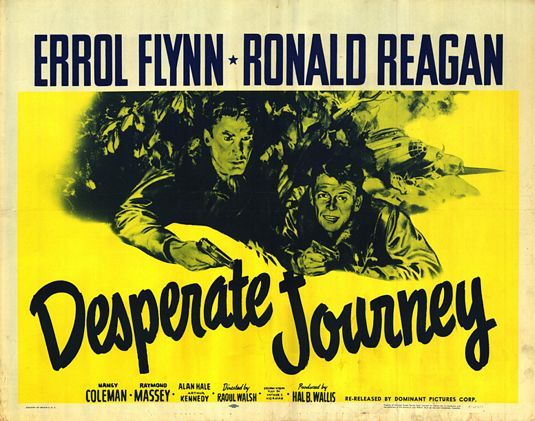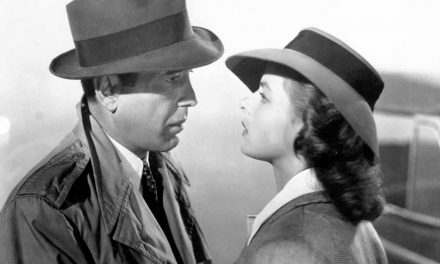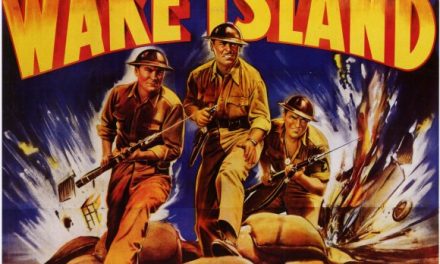Who doesn’t love a good action movie, right? I went into the theater with high hopes and excitement, ready to be transported to a world of action, adventure, and romance for the next two hours. Instead, I was handed a sad attempt at a dramatic feature. While Raoul Walsh’s movie Desperate Journey sounded promising, with an interesting plot and talented cast, it fell very short of expectations.
The film centers around an escape from Nazi Germany during the current war. The beginning was awfully confusing, with no context whatsoever. It seems that American troops have been attacked in Poland, and a U.S. Army plane is sent to retaliate, or maybe sent as a rescue? Who really knows at this point—because the movie bounces all over the place. A flight lieutenant named Terrence Forbes (Errol Flynn) and his crew are shot down near the Polish-German border. Two of the crew are wounded, and they are all captured by the Germans.
Raymond Massey plays Gestapo Major Otto Baumeister, who gets knocked unconscious by one of the Americans, Johnny Hammond (Ronald Reagan). The captured men then find clues to a hidden German aircraft factory. With the German men unconscious, they are able to escape and obtain German uniforms. Along their journey for revenge, they manage to destroy a chemical plant, but two of their comrades die.
The remaining men happen to find a concealed bomber plane and take out the crew. Another of the men, Flying Officer Forrest is shot in this struggle, but does not immediately die. The men kill Baumeister, who had been hot on their trail since they escaped his interrogation. They then use the bomb from the plane to destroy the German base. Once they are safe, they learn that Forrest will not die from his gunshot wound.
If this summary sounded confusing or bland—lacking the attention-grabbers that any thrilling movie needs in order to succeed—that is because it is an accurate depiction of the film.
This was a waste of two hours, and I would only recommend it to someone who is having trouble falling asleep. There were numerous points throughout the film when I actually started dozing off, and it was not for lack of explosions. First off, they spoke so quickly in this movie that it was hard to understand what they were saying. It is a wonder that the actors did not pass out from lack of oxygen to their lungs. The pace of dialog made it hard to follow the storyline—I wished the movie had displayed subtitles so I could at least read what was going on.
I previously gave high praise to Alfred Hitchcock’s Foreign Correspondent, because Hitchcock found a way to transport us away from the war, while not shying away from the topic altogether, in an entertaining few hours. Desperate Journey, however, was a flashy, in-my-face reminder of the horrors our country is currently facing. In a time of constant fear and doubt—when horrible men are spreading their power over countries and our fathers, brothers, sons, husbands are risking their lives to stop them—it is understandable to want something to take your mind off of it all.
Yes, Desperate Journey was advertised as a war movie, so if people did not want to be reminded of war, maybe they should have picked a different movie. However, there are ways of addressing the war, of even having an entire movie about it, without it seeming like reality. The fact is, the movie is technically fiction—fictional people, fictional storyline—and although similar situations have happened, those exact ones have not. Therefore, there are ways of making that fictional part of the movie stand out, so people feel that what is happening on the screen is not actually happening right now. Flesh out the characters more; form actual relationships between them instead of forced interacting.
Some viewers may just want to see things blow up, and they may find Desperate Journey completely satisfying. That is fine. Sometimes I just want to see explosions on the screen. However, this was not one of those times. It was not the worst movie I ever saw . . . but it comes close.





